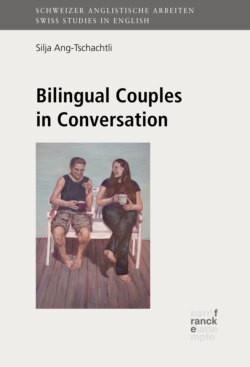Читать книгу Bilingual Couples in Conversation - Silja Ang-Tschachtli - Страница 29
На сайте Литреса книга снята с продажи.
3.3.3.3 Overcoming linguistic challenges
ОглавлениеThe overview of previous work shows that there are a number of challenges that bicultural and bilingual couples may face. These are often seen as a disadvantage for the relationship, and they are the main reason why such relationships tend to be viewed as less stable and more problematic than monolingual, monocultural ones. However, couples may not only learn to cope with their bilingualism, but they may also view it positively and benefit from it. Couples can, for instance, attempt to overcome their linguistic differences to some extent by improving their language skillsproficiency, or by being mindful of linguistic and pragmatic conventions. Furthermore, the partners may have very positive attitudes towards their bilingualism, or a particular interest in their partner’s language and/or culture, and therefore enjoy speaking their L2 or being in a bilingual relationship. Due to their affinity to their partner’s language and/or culture, they often see raising bilingual, bicultural childrenchildrenraising bilingual as an advantage, too. In addition, many bilingual couples consider their relationship to be more interesting than a monolingual relationship (Piller 2002a: 89). Such positive attitudes are especially common in the case of elite bilingualselite bilingual, such as the participants in this study. My aim in this study is not to focus primarily on the challenges bilingual couples may face, but to explore positive aspects and particularities of their relationships as well.
